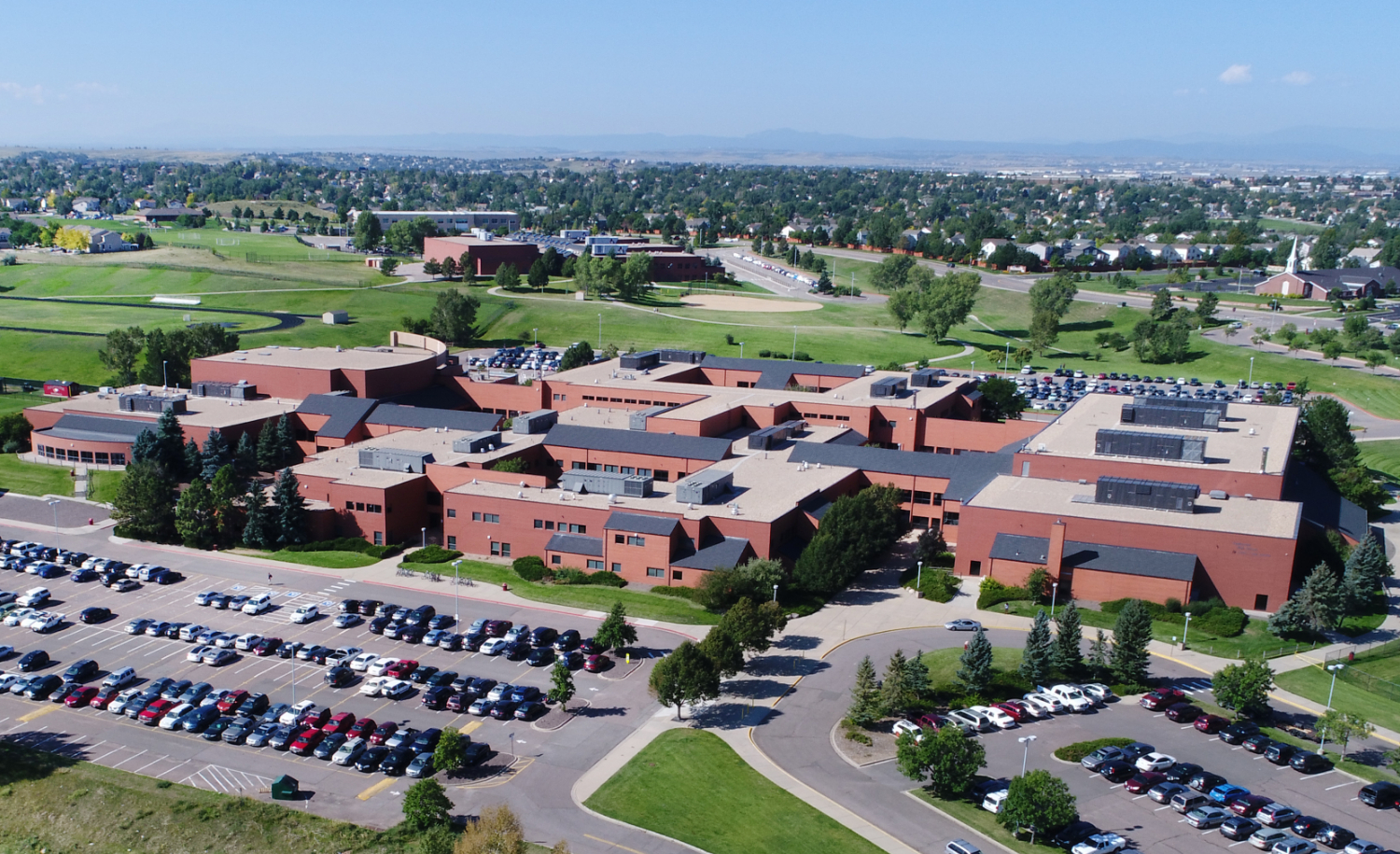
Most classes will resume at Eaglecrest High School in Aurora on Thursday as district and public health officials continue to investigate the deaths of two educators this past weekend — at least one due to symptoms consistent with bacterial meningitis.
After-school activities, such as SAT exams and athletics will resume as normal as well, according to a Cherry Creek Schools email sent to parents.
District officials closed the school of roughly 3,000 students on Wednesday after confirming the death of Maddie Schmidt, a special education teacher at Eaglecrest, was caused by an aggressive case of meningitis. Officials with the Arapahoe County Public Health Department began contact tracing to alert families and staff members who had close contact with Schmidt.
Classrooms in the Integrated Learning Center, where Schmidt worked, will remain closed Thursday and Friday, however, “to allow families and staff to connect with their health care providers,” the district said in an email to teachers.
“(The ILC) will resume as normal on Monday,” said Lauren Snell, a public information officer for the district.
A second Eaglecrest educator also died last weekend, but it is not being investigated as a potential case of meningitis.
Eaglecrest confirmed a second educator death occurred over the weekend. Judith Geoffroy, a paraprofessional in the Integrated Learning Center, died Sunday. But the cause has not been confirmed by the district or Arapahoe County Public Health.
Health department officials said Wednesday they weren’t investigating Geoffroy’s death as a potential case of meningitis.


“We are only investigating the one case,” said Jennifer Ludwig, the health department’s director, in a press conference. “That is the only individual that we have information on at this time.”
Schmidt was young and a high school girls’ soccer coach, according to an Eaglecrest staff member. Public health officials had been in touch with more than 10 people and families with close contact to her, Ludwig said.
“If they're having symptoms, we strongly recommend that they go see a health provider so they can be evaluated and tested further,” she added.
Ludwig and other officials stressed that it’s unclear whether her case was an isolated incident or part of a broader outbreak.
“I think it's a little premature to say we have an outbreak, because cases do occur spontaneously,” said Dr. Chris Urbina, Chief Medical Officer, for Arapahoe County Public Health. “That’s why we're attempting to identify the exposure and getting people prophylaxis as soon as we can.”
What is bacterial meningitis
Bacterial meningitis is a serious condition in which the lining of the brain and spinal cord becomes inflamed. It can be deadly but can be treated with antibiotics.
About one in 10 people who get bacterial meningitis die, and one in five have severe complications, according to the World Health Organization.
The symptoms of bacterial meningitis include high fever, severe headache, stiff neck, sleepiness and being disoriented or confused. The bacteria that causes the condition can be spread by direct contact with saliva or nose discharge.
Cherry Creek Schools said it didn’t have details about the type of Integrated Learning Center classroom that Schmidt worked in, including the nature of how close educators’ contact is with students.
Students in such specialized centers may get hand-fed by staff members, require assistance with toileting or have mouths regularly wiped, according to special educators.
Following a case of bacterial meningitis, public health typically notifies close contacts and recommends they receive an antibiotic that will eliminate the bacteria from their respiratory tract, according to the Colorado Department of Public Health and Environment.
The treatment could prevent them from getting sick or prevent them from spreading to others if they are a carrier. The state health department said it was assisting Arapahoe County Public Health, and referred all questions to local officials.
Meningococcal conjugate vaccines
A spokesman recommended that families check the status of their children’s meningococcal conjugate vaccines. The Centers for Disease Control recommends children get vaccinated against the disease starting at age 11. Young adults are also recommended to get vaccinated.
Many adults aren’t vaccinated against the disease because the CDC didn’t recommend inoculation until 2005, according to its website.
It’s unclear what the rate of vaccination in Eaglecrest’s ILC is. Many students in the district are required to receive the vaccine unless they opt out under religious exemption, said Maureen Welch, founder of Navigating Disability Colorado and the parent of an ILC student at Cherry Creek High School.
But educators aren’t required, she added.
“I think the risk is actually higher for the adults,” Welch said. “Older adults probably aren’t vaccinated (against meningitis), and likely have higher risk factors for getting sick.”
In its email with parents, Cherry Creek Schools asked anyone experiencing symptoms to stay home.
“If you have questions about your health or your child’s health, please reach out to your health care provider,” the district wrote.









